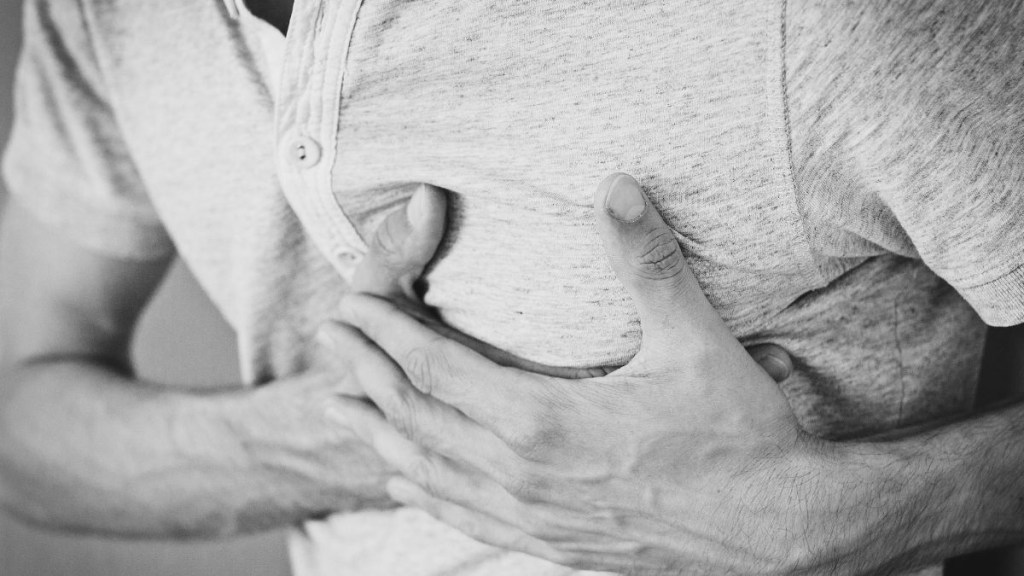We often prioritise other commitments, be it work or personal life. But life can change in minutes, and a recent incident shows why health should never be ignored, even for those who appear perfectly healthy. On September 13, 2025, Mr Shankar, a 40-year-old professional, died from a sudden cardiac arrest just minutes after sending a message to his boss requesting sick leave.
Shankar, described by his manager KV Iyyer as a ‘healthy and fit’ team member, had been with the company for six years. He led a disciplined lifestyle, abstaining from smoking and alcohol, and was married with a young child.
What exactly happened that morning?
At 8:37 am, Shankar messaged Iyyer complaining of severe back pain and requesting the day off. Mr Iyyer simply replied, “Ok, take rest,” and continued with his day. However, just 10 minutes later, at 8:47 am, Shankar suffered a fatal cardiac arrest at home, while still conscious.
The tragic news reached Iyyer around 11 am via a phone call. Initially in disbelief, he contacted another colleague to confirm Shankar’s condition and get his address. Rushing to the residence, he found the unthinkable had happened. Iyyer later took to X where he shared this incident and urged everyone to prioritise their health first as life is very uncertain.
“One of my colleagues, Shankar, texted me this morning at 8:37 am, ‘Sir, due to heavy back pain, I am unable to come today. So please grant me leave.’ Such a leave request, being usual, I replied ‘OK, take rest.’ And the day continued normally. At 11 am, I received a call that shook me like never before… Got the address and rushed to his house. He was NO MORE.”
“He suffered a cardiac arrest. Life is so unpredictable. Be kind to people around you & live life happily till it lasts, for you never know what’s in store the next minute. Om Shanti,” his post further read.
DEVASTATING INCIDENT WHICH HAPPENED TODAY MORNING :-
— KV Iyyer – BHARAT 🇮🇳🇮🇱 (@BanCheneProduct) September 13, 2025
One of my colleague, Shankar texted me today morning at 8.37 am with a message
"Sir, due to heavy backpain I am unable to come today. So please grant me leave." Such type of leave requests, being usual, I replied "Ok take…
Early symptoms of cardiac arrest that are often overlooked
After this incident went viral, netizens filled the comments section pointing out that early symptoms of a heart attack or cardiac arrest, such as back pain, fatigue, sweating, and nausea, can often be mistaken for gastric issues or simple muscle strain, delaying critical medical intervention. To know what are the signs that shouldn’t be ignored, we got in touch with an expert who explains symptoms to watch out for.
Dr Mukesh Goel, Senior Consultant in Cardiothoracic and Cardiovascular Surgery at Indraprastha Apollo Hospitals, explained, “Cardiac arrest can happen even in seemingly healthy individuals. Sometimes, warning signs like chest discomfort, palpitations, or sudden fatigue appear minutes or hours before the heart stops. Unfortunately, these signs are often subtle and easily ignored.”
He further shared that people overlook subtle signs like back pain, fatigue, or shortness of breath, thinking it’s minor. But sometimes, it’s your heart signalling distress.
What triggers a cardiac arrest?
Cardiac arrest is sudden and life-threatening. Unlike a heart attack, it stops blood flow to vital organs right away, which can quickly turn fatal if untreated. According to the World Health Organization (WHO), the most common signs include a person collapsing suddenly, losing consciousness, and showing no normal breathing or pulse.
“While some people may experience warning signs before, such as lightheadedness, shortness of breath, or unexplained weakness, many cardiac arrests occur without any warning,” Dr Goel added.
How to spot the warning signs
As per American Heart Association (AHA), recognising early signs of cardiac arrest is critical. Warning signs may include chest pain or discomfort, palpitations or irregular heartbeat, dizziness or lightheadedness, shortness of breath, and sudden or extreme fatigue. If someone faints, becomes unresponsive, or is not breathing normally, it may be a cardiac arrest. But quick response can save lives, hence one should call emergency services right away and start CPR if trained.
How to prevent a cardiac arrest?
Prevention is always better than cure. Dr Goel advises, “A heart-healthy lifestyle is the most effective way to reduce risk. This includes quitting tobacco, eating a balanced diet with fruits and vegetables, staying physically active, managing stress, controlling blood pressure and cholesterol, and regular medical checkups.”
Other ways to lower the risk include keeping a healthy weight, limiting alcohol, avoiding salty and fatty foods, and managing long-term health problems like diabetes, irregular heartbeat, or heart-related issues.

